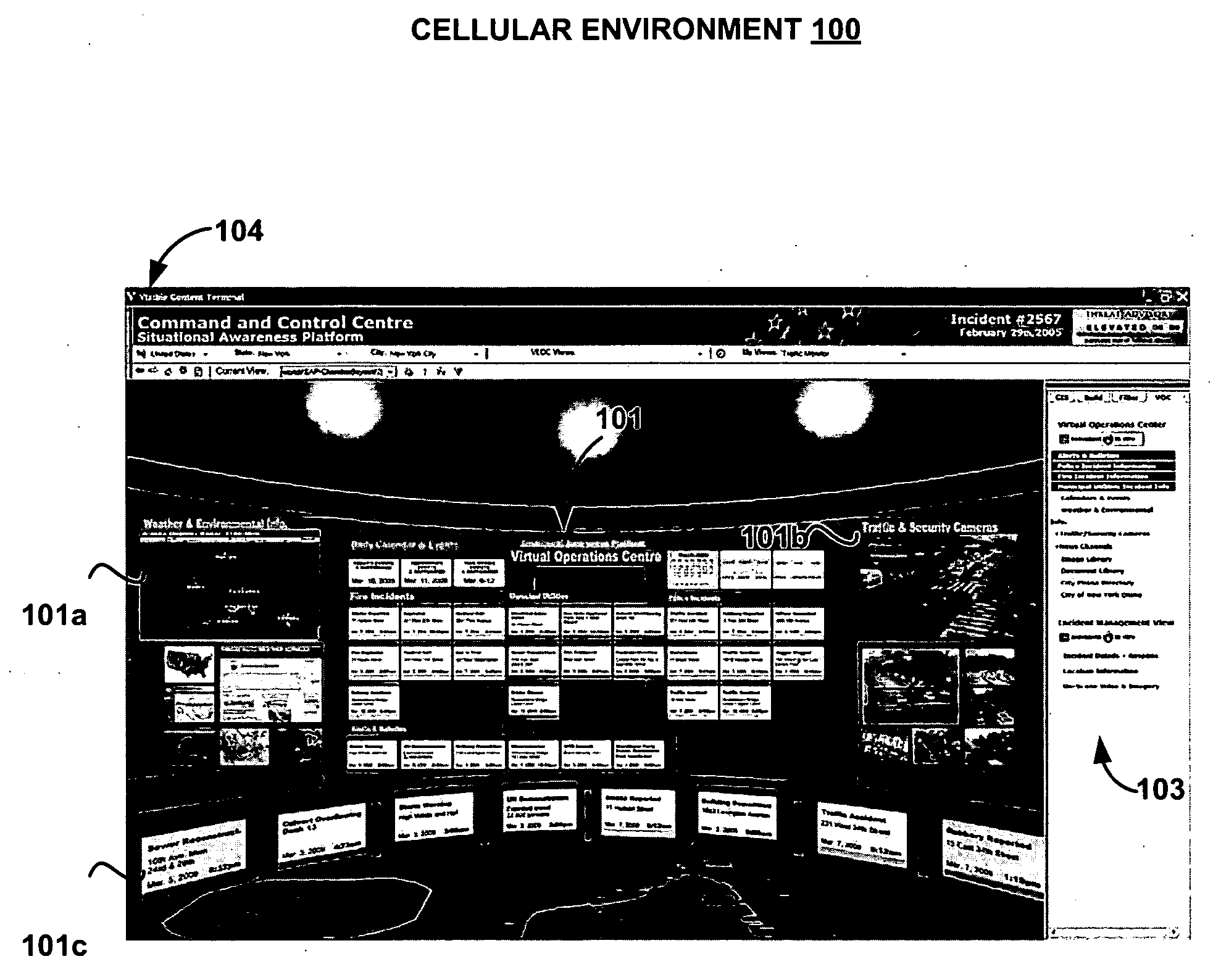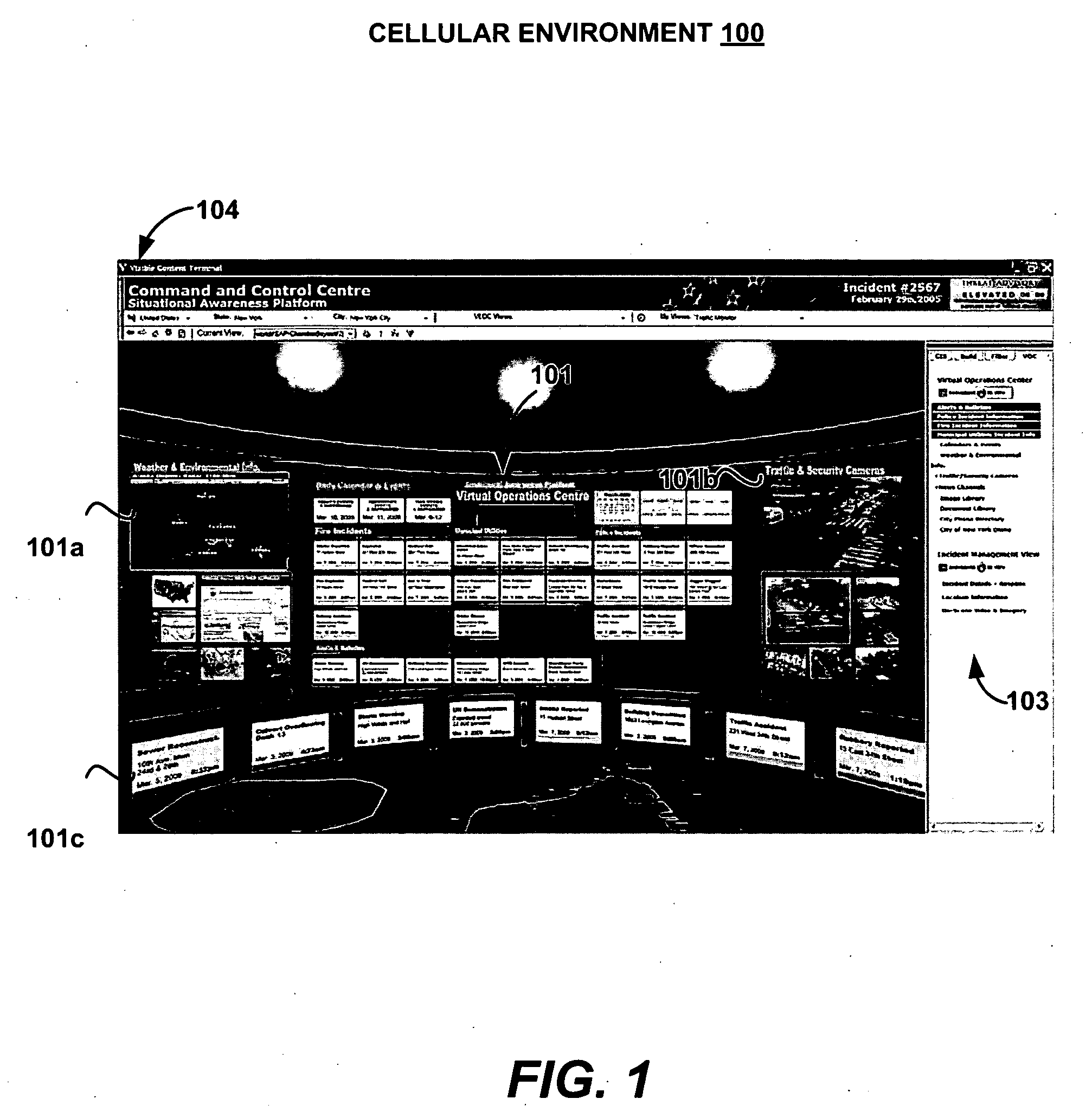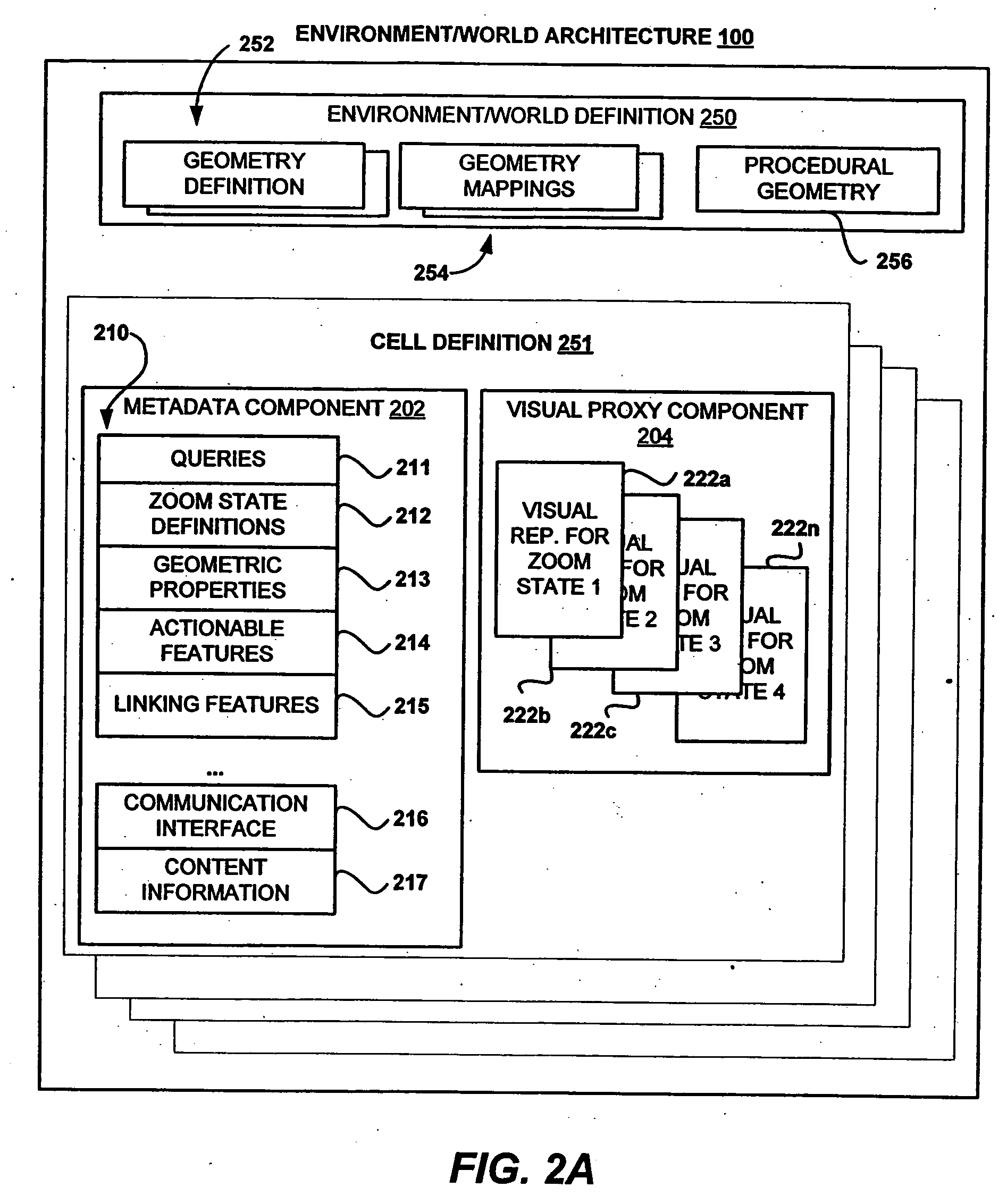Cellular user interface
a graphical user interface and cellular technology, applied in computing, instruments, electric digital data processing, etc., can solve the problems of reducing the processing speed of both the display of output graphics and the execution of application functional codes, reducing the computing resources of the system, and requiring significant computing resources to generate and display output graphics. high-flexibility
- Summary
- Abstract
- Description
- Claims
- Application Information
AI Technical Summary
Benefits of technology
Problems solved by technology
Method used
Image
Examples
implementation embodiment
XML Implementation Embodiment
[0068] In one embodiment, the cellularized environment architecture may be implemented in XML. One example of an XML implementation includes a world description file with a .viz file extension, “the vizible file.” The vizible file includes XML tags for the cellularized environment / world definition 250. These tags provide a set of variables that define properties of the cellularized environment or world 100. In general, there may be two general types of tags, world data tags and cell data tags. World data tags define the environment / world definitions 250, that is, the geometrical definitions 252, the geometry mappings 254, and procedural geometry 256 describing their interaction. The world definition may also include additional world properties, such as present views, channels, additional functionality, and the like. In one embodiment, the vizible XML file (“.viz”) includes the XML tags for the world 100.
[0069] In an XML implementation, the world 100 and...
PUM
 Login to View More
Login to View More Abstract
Description
Claims
Application Information
 Login to View More
Login to View More - R&D
- Intellectual Property
- Life Sciences
- Materials
- Tech Scout
- Unparalleled Data Quality
- Higher Quality Content
- 60% Fewer Hallucinations
Browse by: Latest US Patents, China's latest patents, Technical Efficacy Thesaurus, Application Domain, Technology Topic, Popular Technical Reports.
© 2025 PatSnap. All rights reserved.Legal|Privacy policy|Modern Slavery Act Transparency Statement|Sitemap|About US| Contact US: help@patsnap.com



